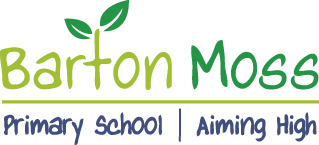Maths

At Barton Moss Primary school, we aim to offer a coherent and well-supplemented scheme - underpinned with solid basic skills; with an overarching theme of appropriate levels of challenge for all ability groups.
We want our children to ‘develop logical and methodical thinking, to focus and to solve a wide range of Mathematical problems’. An integral line of our vision statement, ‘Every Child Numerate’ really signifies how important the mathematics curriculum is within the values of our school and is underpinned by the three statutory aims of the National Curriculum: fluency, reasoning and problem solving.
We adapt a mastery approach to the teaching and learning of Mathematics. Essentially, our ethos is that all children can be successful in the study of Mathematics as we prepare them for ‘a future of possibilities’. We teach the skills to ensure our children are resilient learners who become life-long mathematicians. We aim to deliver an inspiring and engaging mathematics curriculum through high quality teaching. We endeavour to surpass the National Curriculum expectations, at every stage, to ensure all pupils in our school can access the full curriculum and have strong foundations for future learning.
In Early Years, children follow the early years foundation stage curriculum. We give all children the opportunity to talk and communicate in a widening range of situations and to practise and extend their range of vocabulary and numeracy skills. They have the opportunity to explore, enjoy, learn about, and use mathematics in a range of situations. Maths is planned on a weekly basis and assessed using the criteria from the early learning goals. Maths is taught both as a discrete subject and within the whole early years curriculum to give children opportunities to use their Numeracy skills in real life situations.
